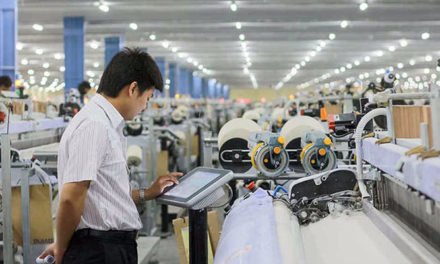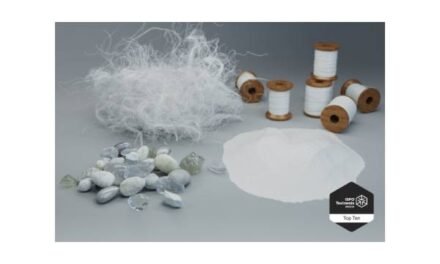It also urged the government to withdraw a 5 per cent Advance Tax on importing textile machinery
Bangladesh Textile Mills Association (BTMA) recently urged the government to withdraw the 5 per cent advance tax on import of textile machinery, spare parts and some raw materials imposed in the proposed Budget for 2019-2020.
They said the proposed taxes would discourage investment in the sector, and halt expansion of textile mills in the country. The draft Budget has imposed a 5 per cent advance tax (AT) on some raw materials used in textile mills such as polyester, Tencel fibre and viscose. The Budget has also proposed similar tax on import of textile machinery and spare parts.
BTMA President Mohammad Ali Khokon made the call at a press conference at the Pan Pacific Sonargaon Hotel in Dhaka. “The government wants to increase investment in the industrial sector. But the Budget has proposed to impose 5 per cent AT on textile machinery, which would make investment expensive and non-profitable,” Mohammad Ali Khokon told the briefing.
“As a result, investment would be hindered and entrepreneurs will feel discouraged to make new investment or go for expansion,” said Khokon. Currently, import of textile machinery is subject to only 1 per cent customs duty. “Considering the present context of the sector, we are requesting the government to withdraw the AT on machinery and spare parts to encourage investment in the basic industrial sector and ensure the survival of the industrialists,” Khokon added.
As per the BTMA data, from 2014 to 2018, local entrepreneurs invested an average of Tk1,380 cr per year in the primary textile sector. The BTMA, platform of the country’s yarn manufacturers, has also urged the government to withdraw the AT on import of raw materials. Besides, the budget also proposed another 5 per cent value added tax (VAT) on manufacturing of yarn.
Local yarn manufacturers were facing trouble due to illegal import of yarn through mis-declaration, while the fresh imposition of VAT would increase the prices of yarn further, organisers said. “As a result, fabrics manufacturers would not be interested to buy local yarn,” said Khokon.
“If the government implements the proposed 5 per cent VAT on yarn, a manufacturer has to pay an additional amount between Tk9.40 and Tk23.50 for each kilogram of yarn. “Considering the present context of the industry, we are requesting the government to keep the yarn out of VAT net or set the VAT amount at Tk4 for per kg yarn,” said the BTMA President.
Currently, the manufacturers are paying Tk3 on per kg of yarn in VATs. However, the BTMA welcomed the Budgetary proposal of keeping the corporation tax rate at 15 per cent for the textile sector for the next three years and 1 per cent cash incentive against exports of apparel goods to traditional markets.
The textile sector also urged the government to keep tax at source at 0.25 per cent unchanged for the next fiscal year as the existing rate would expire on June 31. In the outgoing fiscal year, the proposed Budget had proposed 1 per cent tax at source for the apparel sector, which was lowered to 0.25 per cent in the original budget in response to the demand from the apparel sector people.
As the government did not propose the source tax for the sector, the 1 per cent rate would be applicable from next fiscal year, said the BTMA President. Currently, local manufactures are capable of supplying around 85 per cent demand of yarn and fabric, along with 40 per cent requirement of woven fabric in the knitwear sector.
According to Bangladesh Bank (BB) data, Bangladesh’s textile and apparel sector received foreign investment worth $421.68 mn in 2017, which was 15.70 per cent higher than $364.44 mn in 2016. As per the BTMA, there are 430 yarn manufacturing mills, 802 fabrics manufacturing mills, and 244 dyeing-printing finishing mills in Bangladesh, along with 32 denim fabrics manufacturing mills and 22 home textile manufacturing mills.






















